

Rear Admiral Zeev Almog
NAVAL INSTITUTE PRESS
Annapolis, Maryland
The latest edition of this work has been brought to publication with the generous assistance of Marguerite and Gerry Lenfest.
Naval Institute Press
291 Wood Road
Annapolis, MD 21402
2010 by Rear Admiral Zeev Almog.
All rights reserved. No part of this book may be reproduced or utilized in any form or by any means, electronic or mechanical, including photocopying and recording, or by any information storage and retrieval system, without permission in writing from the publisher.
ISBN 978-1-61251-395-9 (eBook)
The Library of Congress has cataloged the hardcover edition as follows:
Almog, Zeev, 1935
[Atalefim ba-Yam ha-adom. English]
Flotilla 13 : Israeli commandos in the Red Sea, 19671973 / Zeev Almog.
p. cm.
Includes bibliographical references and index.
1. Israel. Hel-ha-yamCommando troops. 2. Israel-Arab War, 1973. 3. Naval
tactics. 4. Commando troops. 5. IsraelHistory, Naval. I. Title.
DS128.14.H45A4613 2010
359.984dc22
2010022122
 Print editions meet the requirements of ANSI/NISO z39.48-1992 (Permanence of Paper).
Print editions meet the requirements of ANSI/NISO z39.48-1992 (Permanence of Paper).
14 13 12 11 10 9 8 7 6 5 4 3 2
First printing
Contents
T he publication of this book would not have been possible without the support and help of many dear friends and colleagues.
I wrote this book in memory of Flotilla 13ths warriors who lost their lives in combat operations that I commanded and are described in this book: Dani Levi, Haim Shturman, Yoav Shahar, Oded Nir, Rafi Miloh, and Shlomo Eshel. I shall always cherish their memory.
I also wrote this book in honor and admiration for an exceptional group of people, soldiers, and officers who served with me in the Israeli Naval Commando Unit, and took part in difficult operations under my command and the command of others. This small group of people put Flotilla 13 at the forefront of the Israeli Navy and military operations and wrote a remarkable chapter in their history book.
I am deeply indebted to two commanders and friends who have mentored and supported me for more than half a century: Captain Itzhak Rahav (Izzi), who was the commander of Flotilla 13 when I joined it and encouraged me to volunteer to serve in the unit and in the Israeli Navy; and General Israel Tal (Talik), Deputy Chief of Staff of the Israeli Defense Forces during the 1973 war who has inspired me with his wisdom and leadership.
Throughout my career I had the privilege and honor of working with remarkable Americans who provided great support to me, the Israel Navy, and to the State of Israel: Admiral Thomas Hayward, a former CNO of the U.S. Navy, with whom I had the privilege of serving when I was the C.I.C. of the Israeli Navy. Since that time our friendship has only become stronger. The late Captain Ted Fielding, commander of the U.S. Navy SEALs, and the late Rear Admiral Chuck Le-Moyne with whom I trained and became friends; and my dear friend Lee Mansi, Lieutenant Commander U.S. Navy (Res.), also a U.S. Navy SEAL officer, and a true American hero. My friends Rear Admiral George Worthington and Rear Admiral Cathal (Irish) Flynn, who have enlightened me with their ideas about naval special operations. My dear friend Captain Abe Greenberg, U.S. Navy (Ret.), another American hero, who was my sponsor at the Naval War College. Abe has reviewed this book and has contributed immensely to its publication. I shall always be indebted to him.
The book was published originally in Hebrew by the Israeli Defense Ministry and the Galili Center for Defense Studies at the initiative of Lieutenant Colonel (Ret.) Avraham Zohar and Shlomo Sela. I thank them.
Finally, I am deeply grateful to my wife, Dr. Geula Almog, for her continuous support, love, constructive suggestions, and enlightening comments.
Zeev Almog

Note: Editing: Aryeh Idan (Hebrew version); translation (from Hebrew to English): Avi Aronsky; design and arrangement of diagrams and illustrations: Eliyahu Schwartz (Metukah) and Dganit Kochli; design of maps on pp. 4, 137, and 139: Avigdor Orgad
T his book constitutes a refinement of the lectures I delivered in 20045 on the operations of the Shayetet (Flotilla) 13 (S-13) during the War of Attrition and Yom Kippur War, within the framework of the seminar named Special Operations in the Wars of Israel from 1943 to 1981. The seminar was sponsored by the Galili Center for Defense Studies, under the stewardship of Lieutenant Colonel (Res.) Avraham Zohar from the Association of Military History at Tel-Aviv University.
The work is the fruit of an in-depth study of the large array of relevant historical material on the topic at hand. In both my oral and written presentation, I leaned on the following sources: the authorized sources of the Israeli Defense Forces (IDF); historical research and scholarly publications on the War of Attrition, such as the research conducted by the above-mentioned Avraham Zohar and Dr. Mustafa Kabha of Tel-Aviv University; my personal acquaintance with the figures involved; and the knowledge that I accumulated throughout my thirty-three years of service in the IDF, which included five of Israels wars. I took an active part in all these wars, and some of the campaigns that were waged in between, as either a combat soldier or officer. Over the course of my tenure in the Israeli Navyboth within and outside of the S-13I gained experience in all the combat and command levels of naval commando operations. During the period in which I commanded the S-13, which encompassed the War of Attrition, there was a dramatic increase in its operational activity. Accordingly, the units combat force was built up and ultimately doubled; its combat methods were consolidated; and new combat and organizational means were forged.
The first part of the book chronicles my tenure as the commander of the S-13, from May 1968 to October 1971. I recount my efforts to overcome the S-13s trauma from the Six Day War and get it back in the saddle again by carrying out special operations in the marine theater. My objective was to rehabilitate the organization that I was reared in, and whose commandos and staff I loved, and thus help the S-13 reclaim its standing as an active combat unit.
I am well aware of the danger of subjectivity that hovers over my doorstep. That said, my rendition of the facts and assessment of the units achievements are primarily based on the ample store of authorized sources and the testimony of officers and combat soldiers that personally took part in all the relevant events. Moreover, the lectures were given before an audience with a genuine interest in this topicamong them, senior members of the Navy and other IDF corpsand elicited insightful responses, many of which completed or elucidated my thoughts. Some of these remarks have been duly incorporated into the chapters of this book. Consequently, I believe that I have managed to complement, at least partially, the personal vantage point that informs my account with the research and perspective of others.
Next page

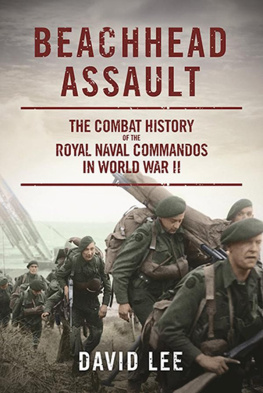
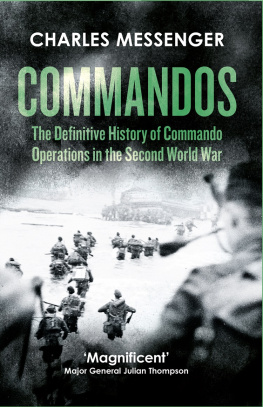
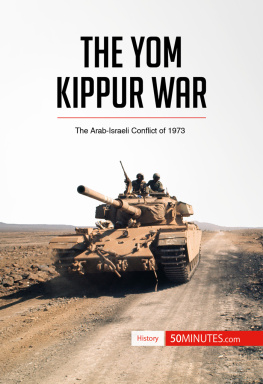
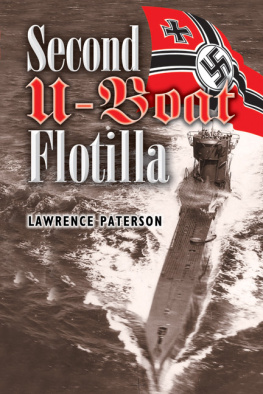
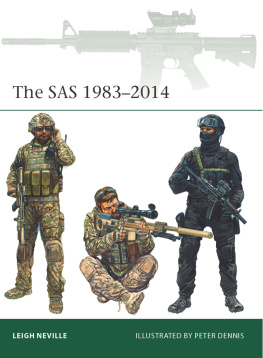
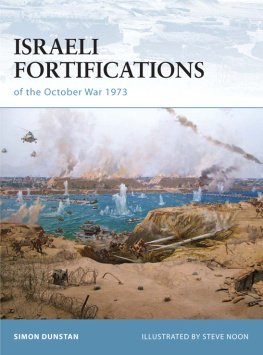
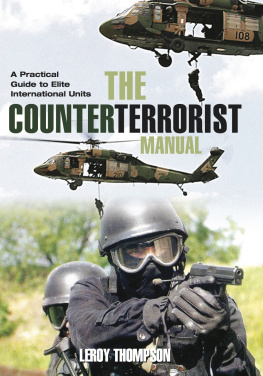
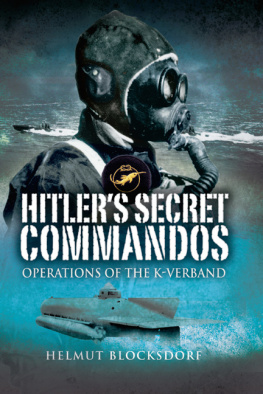
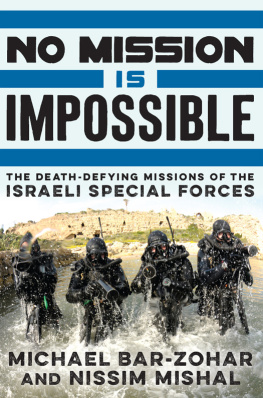
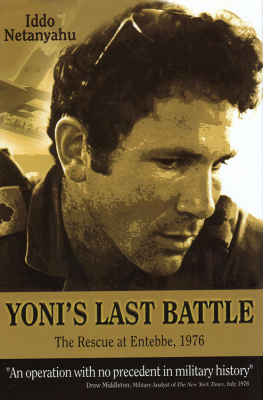



 Print editions meet the requirements of ANSI/NISO z39.48-1992 (Permanence of Paper).
Print editions meet the requirements of ANSI/NISO z39.48-1992 (Permanence of Paper).